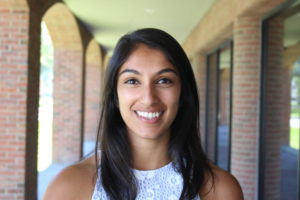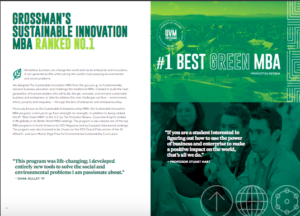Editor’s Note: Professor Stuart Hart, director of external relations and practicums for The Sustainable Innovation MBA, is — in addition to being recognized as a global authority on business strategy and its implications for addressing poverty, founder of the Enterprise for a Sustainable World, which hosts the Base of the Pyramid Global Network Summit.
In 2015, The University of Vermont (UVM)’s Grossman School of Business hosted the 2nd BoP Global Network Summit: “Sustainable Entrepreneurship From The Bottom Up”. We brought together corporate innovators, academics, entrepreneurs, community leaders, students, and BoP Global Lab leaders from more than 16 countries – all on campus at UVM.
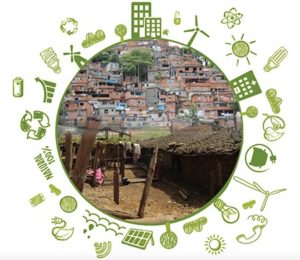
This year, Professor Stuart Hart and friends are organizing the Third BoP Global Network Summit April 18 – 20, 2018 at the India Habitat Centre in New Delhi, India.
The 2018 Summit will include a field visit to initiatives to experience first-hand some of the leading-edge Base of the Pyramid (BoP) business initiatives in India. The field visit will serve to stimulate discussion and action during the Summit itself.
Companies and ventures cannot succeed at the BoP in isolation. It is in the strength of a strong and mutually aligned network and partner ecosystem including academia, government, development agencies, local entrepreneurs, and NGOs, that business will find the keys to success.
The 2018 BoP Global Network Summit will be focused around three such emerging strategies to more effectively reach and serve the Base of the Pyramid.
The three strategies are:
1) Beyond Environmental Degradation: Toward BoP Circular Economy Strategies
Most BoP ventures and initiatives have focused on the social aspects of sustainability while ignoring or deemphasizing the environment. Looking forward, disruptive new “leapfrog” BoP strategies may hold the key to pioneering a truly sustainable, circular economy.
2) Beyond Pipelines: Toward BoP Platform Engagement Strategies
Most BoP ventures and initiatives have focused on building single purpose supply chains and distribution models (pipelines), often with disappointing financial results. Looking forward, platform-based approaches, both cloud enabled and otherwise, may hold a key to building wider and a deeper value.
3) Beyond Selling to The Poor: Toward BoP Market Engagement Strategies
Most BoP ventures and initiatives have focused on developing low cost, “affordable” products and services, only to have them languish. Looking forward developing diverse and creative strategies for engagement and co creation may hold a key to successfully reaching and serving the BoP.
All three strategies hinge on creative ways to build more effective ecosystems and networks.
The objectives of the Summit are to explore the frontiers of these emerging strategies through plenary sessions featuring state-of-the art practice, followed by working sessions to build and accelerate momentum toward making them a reality.
Keynote speakers include Jonathon Porritt – the co-founder of Forum for the Future and Suresh Prabhu, Minister of Commerce and Industry, India, and many more.
See the full speaker line-up here. Sign up here.
Professor Hart’s video here.

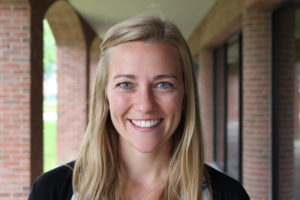 I work in NYC as an Associate Director at
I work in NYC as an Associate Director at  Lesser known is the history of that time when, although many moved to Vermont to find and build a different way to live, a number also were inspired to find and build a different way to do business. Some of Vermont’s most iconic brands — like
Lesser known is the history of that time when, although many moved to Vermont to find and build a different way to live, a number also were inspired to find and build a different way to do business. Some of Vermont’s most iconic brands — like 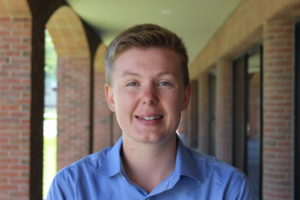 Making a whole new life for myself! I launched my own consulting practice, Third Peak Solutions, and spent much of the fall working from the road while my partner and I traveled around the west (Washington, Oregon, Montana, Wyoming, Colorado and New Mexico) figuring out a new place to call home. In November my partner landed a position at a very cool organization called Adventure Scientists and just after Thanksgiving we moved to Bozeman, Montana. After spending 30 years living in the Northeast, moving to big sky country is a pretty big life change. It’s somewhat terrifying, but mostly thrilling. Now that I’m settling into my new home, I’m focused on defining exactly what Third Peak Solutions does: organizational development consulting with conservation non-profits? Sustainable strategy consulting with for-profits? A little bit of both?
Making a whole new life for myself! I launched my own consulting practice, Third Peak Solutions, and spent much of the fall working from the road while my partner and I traveled around the west (Washington, Oregon, Montana, Wyoming, Colorado and New Mexico) figuring out a new place to call home. In November my partner landed a position at a very cool organization called Adventure Scientists and just after Thanksgiving we moved to Bozeman, Montana. After spending 30 years living in the Northeast, moving to big sky country is a pretty big life change. It’s somewhat terrifying, but mostly thrilling. Now that I’m settling into my new home, I’m focused on defining exactly what Third Peak Solutions does: organizational development consulting with conservation non-profits? Sustainable strategy consulting with for-profits? A little bit of both? Fortunately for us at The Sustainable Innovation MBA, we don’t have to wait until we get home to experience this joy. Meet Willy Wonka, a 3-year-old chocolate lab who has bounded into Kalkin 110 as our 31st classmate during Professor Erik Monsen’s “Crafting the Entrepreneurial Business Model” class.
Fortunately for us at The Sustainable Innovation MBA, we don’t have to wait until we get home to experience this joy. Meet Willy Wonka, a 3-year-old chocolate lab who has bounded into Kalkin 110 as our 31st classmate during Professor Erik Monsen’s “Crafting the Entrepreneurial Business Model” class.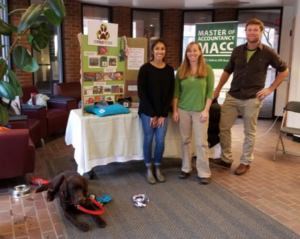 Willy Wonka doesn’t just demonstrate his value around the house. His “dad” is a professor of entrepreneurship, so naturally he has a few different jobs. As a certified therapy dog, Willy Wonka can be seen around campus during exam season providing stress relief to students. When he’s off-campus, you may be able to spot him at your local library, where children read to him. He loves a great story, but it’s hard to know exactly what his favorite genre is. He was even a tester for last year’s cohort’s recycled dog toy company, RePawposed.
Willy Wonka doesn’t just demonstrate his value around the house. His “dad” is a professor of entrepreneurship, so naturally he has a few different jobs. As a certified therapy dog, Willy Wonka can be seen around campus during exam season providing stress relief to students. When he’s off-campus, you may be able to spot him at your local library, where children read to him. He loves a great story, but it’s hard to know exactly what his favorite genre is. He was even a tester for last year’s cohort’s recycled dog toy company, RePawposed.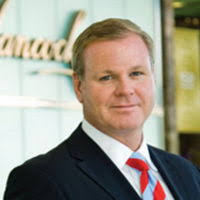 Mr. Arnott describes his background as somewhat atypical among public company CEOs in that he had lots of operations experience, but relatively little formal leadership training, when he started as CEO. His style is therefore largely self-taught, but I was not surprised that his sentiments echoed what The Sustainable Innovation MBA has taught us so far.
Mr. Arnott describes his background as somewhat atypical among public company CEOs in that he had lots of operations experience, but relatively little formal leadership training, when he started as CEO. His style is therefore largely self-taught, but I was not surprised that his sentiments echoed what The Sustainable Innovation MBA has taught us so far.
